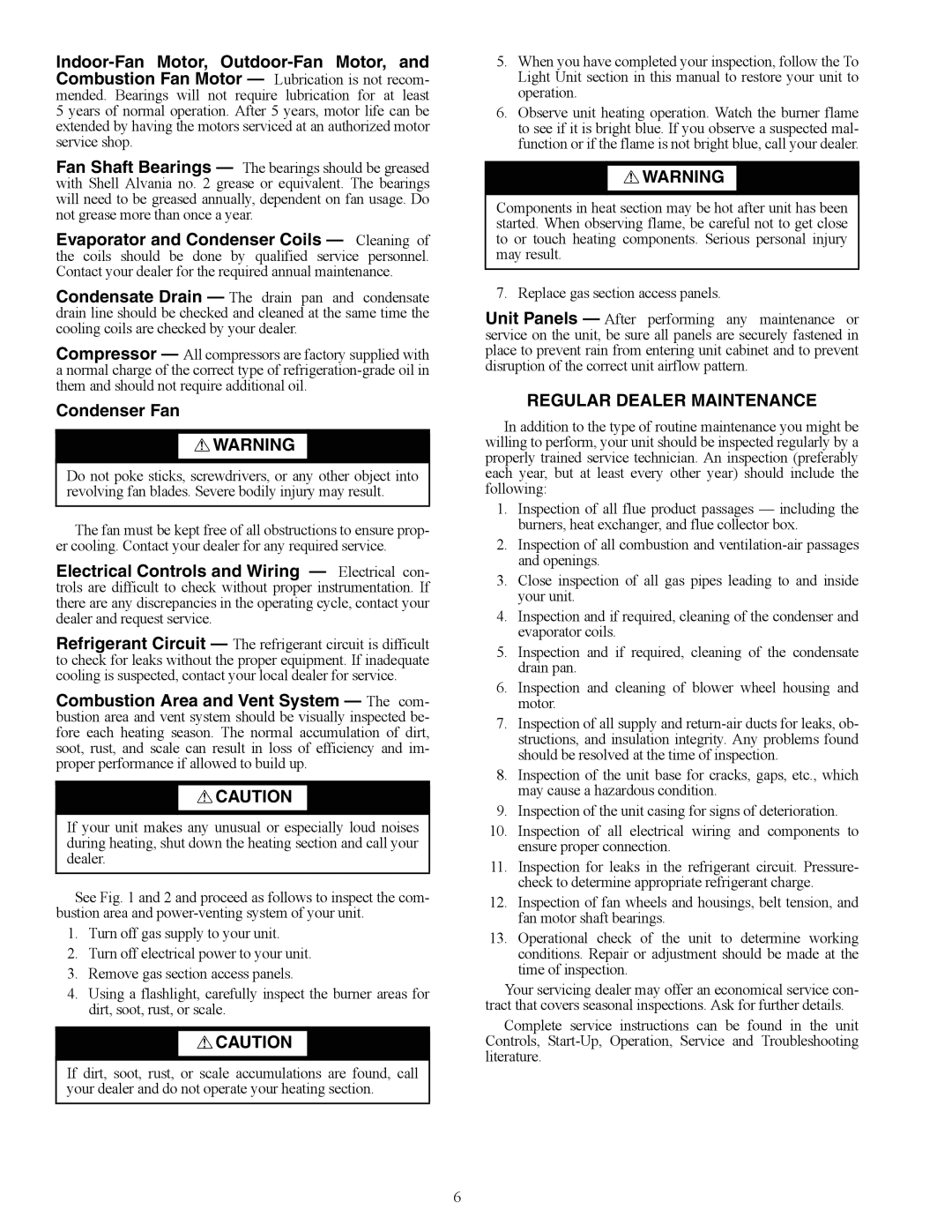62DD, 62DC, 62DA, 62DB specifications
Carrier's 62DB, 62DA, 62DC, and 62DD series are among the most respected HVAC products in the industry, delivering exceptional performance and reliability for residential and commercial needs. Designed with advanced technologies, these units cater to a variety of requirements, ensuring efficient heating and cooling solutions.The 62DB model is known for its robust design, boasting a quiet operation that keeps indoor environments serene. Its multi-position installation flexibility allows for easy adaptation in various space configurations. The 62DB is engineered with an efficient scroll compressor that enhances its performance and reduces energy consumption. Additionally, the unit features high-efficiency coil designs that maximize heat transfer, further improving its efficiency ratings.
The 62DA series takes efficiency to the next level with its variable-speed technology. This allows the system to adjust airflow and cooling capacity based on the demands of the space, offering a consistent and comfortable environment. With a SEER (Seasonal Energy Efficiency Ratio) rating that often exceeds 16, the 62DA qualifies for energy-saving rebates and incentives, making it an economical choice in the long run.
The 62DC model comes equipped with advanced diagnostics technology, including built-in sensors that monitor system performance. These sensors enable proactive maintenance alerts, helping homeowners avoid costly repairs. The 62DC also features a durable cabinet construction that protects the internal components from harsh weather conditions, ensuring longevity and reliability in all climates.
Finally, the 62DD is designed with an emphasis on easy installation and maintenance. Its compact design allows it to fit into tight spaces, while the top-access panels provide technicians with easy service access. The 62DD incorporates a high-efficiency variable-speed blower that ensures quiet operation and optimal humidity control.
In addition to individual model features, the entire series is designed for compatibility with smart technology solutions. They can integrate with home automation systems, allowing users to control their indoor climate remotely. This integration not only enhances user convenience but also contributes to energy savings.
Overall, the Carrier 62DB, 62DA, 62DC, and 62DD series represent a commitment to innovation, performance, and energy efficiency. With their advanced features and technologies, these units provide reliable solutions that meet the demands of modern indoor climate control while keeping energy consumption in check. Whether for residential homes or commercial spaces, Carrier’s offerings deliver the comfort and efficiency that customers expect.

